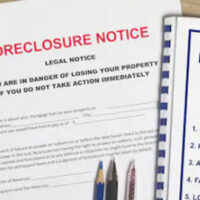CARES Act Gives Some Relief to Homeowners in Foreclosure

Government help in the Coronavirus crisis isn’t just coming in the form of checks. It’s also coming in the form of relief for mortgage borrowers and renters. With provisions similar to those that were implemented after the 2008 housing crisis, these new laws—called the CARES act—can be powerful tools to help borrowers in need or in foreclosure—if they are actually followed by banks and servicers.
Forbearance of Payments
Of greatest interest is the requirement that federally backed mortgage loans be put off (or put into forbearance) for up to a year. To see if your loan is federally backed—that is, whether the loan is backed by Fannie Mae or Freddie Mac—you’ll have to look up your property online.
If your loan is federally backed, and you have hardship due “directly or indirectly” to COVID-19, you qualify for forbearance. For the first 180 days, the forbearance must be granted without additional documentation other than “affirmation of hardship caused by COVID-19.”
For some, showing this hardship will be easy. But knowing banks, it could be incredibly difficult. This is reminiscent of the Troubled Asset Relief and HAMP loan modification programs of 2010, which required that banks modify mortgage loans that were in foreclosure. Many remember the application headaches that happened then—banks losing paperwork, miscalculating loans, or foreclosing on people while they awaited responses to their applications.
If banks were not prepared for and ready to process paperwork and applications in 2010, with plenty of warning of what was coming, you can only wonder how they will be ready to process COVID-19 CARES act applications.
Limitations of Penalties and Property Sales
If the application for forbearance under the CARES Act is approved, for the first 180 days, no extra fees, interest or penalties can be assessed against the homeowner. After that, if the borrower requests, and still has a hardship, the borrower can request the additional 180 days.
Even if you are in foreclosure now, or were about to be before the Coronavirus crisis hit, the CARES act says that no foreclosure lawsuit can be started against you, and if there is a pending foreclosure case, the lender (the foreclosing Plaintiff) cannot move forward with a foreclosure judgment or sale against you, for 60 days.
This sounds good, except when you remember that the Consumer Financial Protection Bureau (CFPB) instituted nearly identical regulations in the 2008 housing crisis. These regulations were largely ignored, with some judges even saying that the laws did not apply to state courts. Despite regulations to the contrary, many people had their properties sold. It remains to be seen whether the CARES act will be ignored the way the CFPB’s regulations were, but at least homeowners do have a tool to give them some relief–and a defense to foreclosures–while the country is shut down.
Are you in foreclosure and need help defending a foreclosure case? Contact the Miami foreclosure defense attorneys at Velasquez & Associates P.A. today for help.
https://www.jvelasquezlaw.com/foreclosures-and-the-professional-witness/
